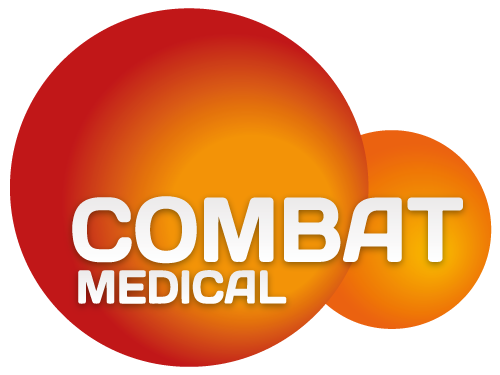Colorectal cancer (CRC) is one of the most common malignancies worldwide, with lifestyle and dietary factors playing huge roles in its development. Recent research at Mass General Brigham has highlighted the potential of probiotics, particularly strains like Bifidobacterium, in mitigating the risk of CRC. These are interesting findings, and it is not too difficult to incorporate yoghurt into the diet, making it a useful cancer prevention tool. Of course this is not the only study on this topic, and the benefits of probiotics have been widely known, not only for cancer prevention, but also for conferring mental health benefits, the treatment of IBS, and even reducing the risk of cardiovascular disease.
Colorectal Cancer Risk Factors
Known risk factors for colorectal cancer include genetic predisposition, age, having a sedentary lifestyle, and notably, dietary habits. A diet low in fibre and high in processed foods has been linked to an elevated CRC risk, which is why incidence of this type of cancer is much higher in developed countries. Conversely, diets rich in fruits, vegetables, and fermented foods are associated with a reduced risk.
The Role of Gut Microbiota in Colorectal Cancer
The trillions of microorganisms that make up the human gut microbiota are integral to digestion, immune modulation, and maintaining intestinal integrity. Dysbiosis, or an imbalance in this microbial community, has been implicated in various diseases, including colorectal cancer. Certain pathogenic bacteria can produce carcinogenic compounds, induce inflammation, and promote tumourigenesis:
https://www.frontiersin.org/journals/microbiology/articles/10.3389/fmicb.2024.1327464/full
Probiotics: Definition and Mechanisms
Probiotics, when administered in adequate amounts, confer health benefits to the host. Common probiotic strains include Lactobacillus and Bifidobacterium species. They exert their beneficial effects through several mechanisms:
- Modulation of Gut Microbiota: Probiotics can restore microbial balance by inhibiting pathogenic bacteria and promoting beneficial ones.
- Enhancement of Immune Response: They stimulate the immune system, enhancing the body’s ability to detect and eliminate cancerous cells.
- Production of Antimicrobial Substances: Probiotics produce short-chain fatty acids (SCFAs) like butyrate, which have anti-inflammatory and anticancer properties.
Bifidobacterium and Colorectal Cancer Prevention
Among probiotics, Bifidobacterium species have garnered attention for their potential anticancer properties:
- Inhibition of Pathogenic Bacteria: Bifidobacterium can suppress harmful bacteria such as Fusobacterium nucleatum, which is associated with CRC progression: https://pmc.ncbi.nlm.nih.gov/articles/PMC10177585/
- Enhancement of SCFA Production: These probiotics increase the production of butyrate, an SCFA that promotes apoptosis of cancer cells and strengthens the gut barrier.
- Immune System Modulation: Bifidobacterium enhances the activity of natural killer cells and modulates cytokine production, contributing to tumour suppression.
Clinical Evidence Supporting Probiotic Use
Recent studies have provided empirical support for the protective role of probiotics against CRC:
- Yoghurt Consumption and CRC Risk: A study utilising data from two large cohorts, the Nurses’ Health Study and the Health Professionals Follow-up Study, found that individuals consuming two or more servings of yoghurt per week had a 20% lower incidence of Bifidobacterium-positive proximal colon cancer. This suggests that yoghurt, rich in live cultures, may confer specific protective effects against certain CRC subtypes: https://www.medicalnewstoday.com/articles/could-yogurt-help-protect-against-colorectal-cancer
- Probiotic Supplementation Trials: Clinical trials have demonstrated that supplementation with Bifidobacterium strains can reduce CRC-related microbial markers and suppress tumour growth in animal models. For instance, a probiotic formula containing B. adolescentis, B. longum, and B. bifidum was effective in reducing microbial risk factors associated with CRC development: https://pmc.ncbi.nlm.nih.gov/articles/PMC10177585/
Integrating Probiotics into Clinical Practice
For medical professionals considering probiotics as a preventive strategy against CRC, the following points are pertinent:
- Dietary Recommendations: Encouraging patients to incorporate probiotic-rich foods, such as yoghurt with live cultures, into their diets may confer protective benefits.
- Supplementation Guidance: While dietary sources are preferable, probiotic supplements containing specific Bifidobacterium strains could be considered, especially for individuals at higher risk of CRC.
- Holistic Approach: Probiotics should complement other preventive measures, including regular screenings, a high-fibre diet, physical activity, and avoidance of known carcinogens.
In Conclusion
There is now a vast amount of evidence pointing to the potential benefits of probiotics, particularly Bifidobacterium species, in reducing the risk of CRC. By modulating the gut microbiota, enhancing immune responses, and producing beneficial metabolites, these microorganisms offer a potential aid to the prevention of colorectal cancer. Integrating probiotic-rich foods into dietary recommendations is not difficult, and could serve as a practical strategy for medical professionals aiming to mitigate CRC risk among patients.

